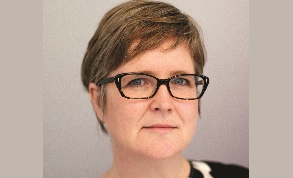ICS framework details core design
The ICS design framework confirmed that there would be two statutory bodies – the ICS partnership and the ICS NHS body.
 The ICS partnership will be established by NHS and local government bodies responsible for social care as equal partners. It will act as a forum to bring interested parties together to integrate care and improve the health and wellbeing of the local population. It will facilitate joint action and it is likely the partnership will have a responsibility to develop an integrated care strategy, covering health and social care, and the wider determinants of health.
The ICS partnership will be established by NHS and local government bodies responsible for social care as equal partners. It will act as a forum to bring interested parties together to integrate care and improve the health and wellbeing of the local population. It will facilitate joint action and it is likely the partnership will have a responsibility to develop an integrated care strategy, covering health and social care, and the wider determinants of health.
The ICS NHS body – will lead integration and bind organisations together in planning and providing NHS services. They will have a number of functions, including:
- Developing a plan to meet the population’s health needs and ensure NHS services and performance are restored post pandemic.
- Allocating resources to deliver the plan, including assessing the resources needed in each place, and setting principles for how capital and revenue is allocated. This will require a balance between local decision-making to meet specific needs, and standardisation and scale across larger areas, such as for specialist services.
- Joint working programmes to solidify joint working to deliver agreed priorities. The ICS NHS body can choose to jointly commission services with local authorities using section 75 pooling arrangements.
- Establishing governance arrangements for collective accountability for whole-system delivery and performance within the funding levels set by NHS England and NHS Improvement. This will be underpinned by each organisation’s statutory and contractual accountabilities.
- Arranging for the provision of health services in line with allocated resources, including agreeing contracts with individual providers, lead providers or provider collaboratives. Contracts should be ‘strategic, long term and based on outcomes, with providers responsible for designing services and interventions to meet agreed system objectives’. The bodies should lead major transformation plans and work with local authority and voluntary organisations.
- Local leadership of national programmes, including the NHS people plan, data and digital programmes, investing in local community organisations and infrastructure, and ensuring the NHS plays a full role in social and economic development and environmental sustainability.
- Driving joint work on estates, procurement, supply chain and commercial strategies to maximise value and support wider development and sustainability.
- Planning for, responding to and leading recovery from incidents (emergency preparedness, resilience and response) including incident co-ordination.
- Taking functions delegated from NHS England and NHS Improvement including commissioning of primary care and some specialised services.
Clinical commissioning group functions will be transferred to the ICS NHS body, along with their assets and liabilities, including commissioning responsibilities and contracts.
In due course, funding will move from the current temporary regime for Covid – with a system envelope that includes a system top-up and Covid fixed allocation arrangements – to the traditional population-based allocations made as part of the long-term funding settlement.
ICSs will receive funding from NHS England and NHS Improvement, but spending decisions will be devolved to the ICS NHS bodies. The bodies will hold budgets for acute, community and mental health services, together with those for general practice services and a running cost allowance. The framework insisted ICS NHS bodies must continue to meet the mental health investment standard.
Funding for services currently held by NHS England and NHS Improvement could also be delegated to ICS NHS bodies, such as some specialised commissioning, transformation and service development funding, and the Financial Recovery Fund.
Funding distribution
The Advisory Committee on Resource Allocation will advise on the distribution of funding, which will take account of population need and pace of change to target allocations.
The central organisations said ICSs could adapt existing allocation tools to distribute funds to place level. It should adopt the principle of equal access for equal need and the need to reduce inequalities. Money will flow largely through contracts, which may be managed by place-based partnerships or provider collaboratives.
For NHS services to be commissioned at place, the ICS NHS body should engage local authority partners, the framework said. This would support transparency of the spending made at place level. It should explain any variation from previous CCG budgets and enable the shared planning or pooling of NHS and local authority budgets, including stated minimum NHS contributions to Better Care Fund arrangements.
The framework adds: ‘An open book relationship between providers of NHS services, supported by improved cost data (PLICS), will give further transparency for stakeholders that the NHS is meeting its commitment to deploy resource according to need and tackle inequalities.’
Spending should deliver the system’s planned financial balance within its financial envelope, which will be set by NHS England and NHS Improvement. Each ICS NHS body should agree priorities and outcomes within its budget, the distribution of revenue allocations to place-based partnerships, NHS providers and other providers.
There should also be an agreed capital plan, and capital allocations will be based on the outcome of the 2022/23 capital settlement for operational capital; nationally allocated funds for large strategic projects and other national programmes; and the methodology being kept under review to ensure allocations meet need. NHS England and NHS Improvement hope to set multi-year capital budgets, subject to the outcome of the next spending review.
The framework was welcomed by NHS Providers and the NHS Confederation, though both said questions remained. Saffron Cordery (pictured above), deputy chief executive of NHS Providers, was concerned that the changes will be implemented as the NHS steps up attempts to restore services, including clearing care backlogs.
‘Trust leaders are keen to ensure ICSs remain a genuine partnership of all the organisations that contribute to local health and care services and outcomes within the system,’ she added.
‘They are increasingly concerned that the ICS model risks moving away from being a sum of its parts to a separate body managing those within it. There must be appropriate governance measures to ensure ICSs are accountable not only to NHS England and NHS Improvement and Parliament, but also to the communities they serve and the organisations within their footprint.’
The NHS Confederation was worried about the status of the ICS partnership. ‘As this part of the ICS is about the wider integration of health and care, there is a real risk of the partnership being perceived to have a far more diluted role than the NHS body,’ said Lou Patten (pictured), ICS Network director at the NHS Confederation and chief executive of NHS Clinical Commissioners.

There were also fears about the intervention powers likely to be given to the health and social care secretary in the forthcoming legislation to put ICSs on a statutory footing.
She added: ‘It is important to acknowledge the current uncertainty for many board-level staff, including CCG, ICS leaders and chairs, and it is vital that the appointments process for ICS chairs, chief executives, executive and non-executive positions is open, fair and transparent. While we recognise this process will take time, current leaders must be properly supported to continue the work required to establish statutory organisations that are fit for purpose by April 2022.’
The HFMA policy team has produced a summary of the guidance. Click here to download
Governance arrangements
The board of new ICS NHS bodies will include a director of finance and chief executive, with the latter acting as the accountable officer for the funding allocated to the organisation.
The framework said in most cases it would expect the board to include other executive members, such as nursing director; non-executives, including a chair and at least two non-execs (the minimum required to chair the audit and remuneration committees); and a minimum of three partner members – at least one from trusts in the ICS area, one from local general practice, and one from a local authority with responsibility for social care.
Non-executives will not normally hold posts or offices in other health and care organisations in the ICS footprint.
The framework document said the governance requirements will be detailed in the forthcoming legislation. But arrangements should differ from existing commissioner and provider bodies to reflect the fact that they are a new type of organisation, bringing together parties from across the NHS.
The board will be responsible for ensuring the delivery of the four purposes of the wider ICS – improving outcomes in population health and healthcare; tackling inequalities in outcomes, experience and access; enhancing productivity and value for money; and contributing to broader social and economic development.
ICSs will have significant flexibility in how and where decisions and functions are undertaken, including delegating decision-making to joint committees with local provider trusts. ICSs will be expected to recognise the key role of place-based partnerships in the co-ordination and improvement of services, as well as to address the wider determinants of health. The ICS NHS body will remain responsible for funding deployed at place.
Related content
We are excited to bring you a fun packed Eastern Branch Conference in 2025 over three days.
This event is for those that will benefit from an overview of costing in the NHS or those new to costing and will cover why we cost and the processes.